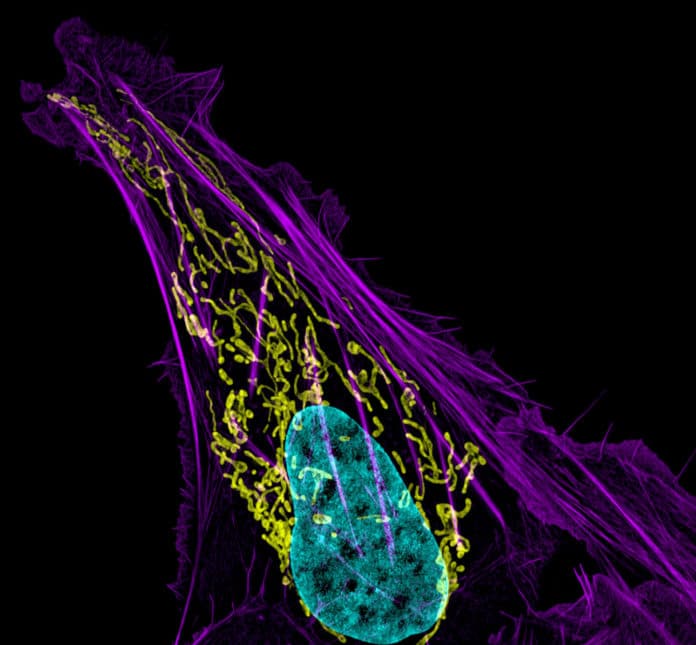The biology of metastatic breast cancer (MBC) seems blind to socio-economic status. Worldwide, MBC mortality rates in developed countries are not that different than in undeveloped countries despite greater numbers of screenings and advanced treatments.
From Alana Welm’s first day as a post-doctoral researcher, she knew she wanted to study metastatic breast cancer (MBC), one of the most complex and challenging types of breast cancer to research.
Some 17 years later, as a Komen Scholar, Huntsman Cancer Institute investigator and associate professor in the department of oncological sciences at the University of Utah, she is still focused on this treatable but incurable disease.
Welm will speak to health professionals and MBC survivors in two sessions Nov. 8 at at the University of North Texas Health Science Center, 3500 Camp Bowie Blvd. She will address health professionals from 7:30 to 8:30 a.m., and her talk for those living with metastatic breast cancer and the general public will follow, from 9 to 10:30 a.m.
Welm earned her Ph.D. in cell and molecular biology at Baylor College of Medicine in Houston and did postdoctoral training in Nobel laureate Dr. J. Michael Bishop’s laboratory at the University of California, San Francisco. She started her laboratory at the University of Utah’s Huntsman Cancer Institute in 2007 and was promoted to associate professor with tenure in 2013.
Her presentation is part of the Susan G. Komen Greater Fort Worth Komen Scholars Series, a twice-yearly event for local health professionals, patients and the public to meet and hear from prominent breast cancer researchers.
“We still don’t understand the biology of metastatic breast cancer,” Welm said recently. “Despite the fact that more breast cancer is being diagnosed and successfully treated because of more awareness and early screening, this improvement has not impacted the mortality rates of those with metastatic disease to the degree that we hope for.”
Overall breast cancer survival rates today are estimated at 70 to 80 percent of all cases. Some 20 to 30 percent of tumors can metastasize, which significantly reduces survival. Moreover, metastatic breast cancer is particularly difficult as the kind of tumors that metastasize can do so before any primary tumor is found, even with state-of-the-art screening. A diagnosis of MBC can be a patient’s first diagnosis or, more often, it is a recurrence later on.
While disparities do impact minority populations’ access to breast cancer screenings, treatment and overall outcomes, the biology of MBC seems blind to socio-economic status. Worldwide, Welm said, MBC mortality rates in developed countries are not that different than in undeveloped countries despite more screenings and advanced treatments in developed countries.
Since her lab was established in 2007, Welm said, there is more funding and more research underway across the nation studying MBC. Current research on the disease is broad and includes studies of how cancer cells move and migrate; genetic evolution of tumors; why MBC is resistant to therapies that are successful in breast cancer detected early; how the environment of the new tumor site facilitates growth and how to block it; differences between MBC and primary cancer; and immunotherapy.
Welm said barriers to MBC discoveries include a lack of appropriate research models. Animal models don’t entirely mimic human models, and humans in a clinical trial are often very sick with tumors that have already been exposed to many therapies. Furthermore, the tumor can spread to diverse locations such as bones or lungs, which have very different characteristics. Moreover, heterogeneity of the MBC tumors requires studies that are distinct from other types of breast cancer and other cancers. Welm said groups of researchers are challenging the field to develop better models.
“Beyond needing more research and research dollars, the field of MBC research needs innovation,” she said.
High-risk, high-reward research is expensive and isn’t common in a career field where following in the footsteps of existing research, pressure to publish, pressure to obtain grants and other factors dissuade innovation. Welm said Susan G. Komen, the Department of Defense, and METAvivor are some organizations that are funding researchers taking chances and focusing on MBC.
Other barriers to new discovery in MBC include lack of patient metastatic tumor samples from different sites and limited collection of samples from diverse racial and ethnic populations.
“We need to study tumor samples from non-primary tumors, but obtaining metastatic tumor samples is difficult,” Welm said. “They often are not biopsied for research because it is not considered clinically necessary, it can be risky, and it is costly.”
What gives Welm hope in a daunting area of study is the success of recent developments in other types of cancer. “Immunotherapy, for example, resulted from decades of basic science research and has had great impact on certain other cancers. We still have a lot of work to do.”
Jean Tips is principal at Communicate for Health
communicateforhealth.com
Komen Scholar Metastatic Breast Cancer Event
Nov. 8
UNT Health Science Center
MET Building / Room 109-111
Parking available at Lots 7 and 19
UNTHSC campus map: unthsc.edu/campusmap
First session, for health care providers: 7:30–8:30 a.m.
Second session, survivor brunch: 9–10:30 a.m.
Register for either session: bit.ly/KomenScholar






